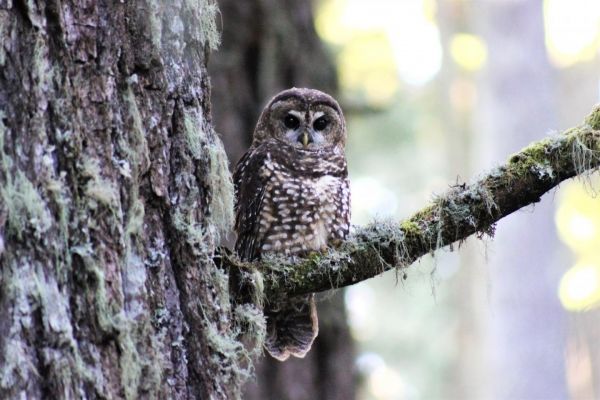New findings show that old-growth forests, a critical nesting habitat for threatened northern spotted owls, are less likely to experience high-severity fire than young-growth forests during wildfires. This suggests that old-growth forest could be leveraged to provide valuable fire refuges that support forest biodiversity and buffer the extreme effects of climate change on fire regimes in the Pacific Northwest.
A recent study (link is external) published in the journal Ecosphere examined the impact of the Douglas Complex and Big Windy fires that burned in the Klamath-Siskiyou region of Oregon during July 2013, a drought year. The fires burned through a long-term study area for northern spotted owls. Using information on forest vegetation before and after the fires, along with known spotted owl nesting areas, researchers had an unprecedented chance to compare the impact of wildfire on critical old-growth nesting habitat.
“On federally managed lands, spotted owl nesting habitat is largely protected from timber harvest under the Northwest Forest Plan, but wildfire is still a primary threat to the old-growth forest that spotted owls rely on for nesting habitat,” said research wildlife biologist Damon Lesmeister. “The loss of spotted owl nesting habitat as a result of severe fire damage could have significant negative impacts on the remaining spotted owl populations as well as a large number of other wildlife species that rely on these old forests.”
Old-growth forests have more vegetation than younger forests. Researchers expected that this meant more fuel would be available for wildfires, increasing the susceptibility of old-growth forests to severe fire, high tree mortality, and resulting loss of critical spotted owl nesting habitat. However, the data suggested a different effect.
Read more at USDA Forest Service - Pacific Northwest Research Station
Image: A northern spotted owl. (Credit: USDA Forest Service photo by Damon Lesmeister)


